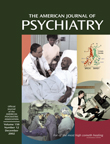The author, an experienced psychiatrist-internist, gives a fine verbal picture of a place, Bethel in West Alaska, and the happenings in an Eskimo community, the Yup’iks. In 1981, at age 55, she feels “empty,” having gone through a divorce from her longtime physician partner. Her children are adults. After visiting Bethel, a delta area of 45 villages near the Bering Sea, she returns for 3 years under contract with the health service there. Her adventures on tundra and ice, not to omit numerous short trips in airplanes, are in themselves thrilling. As you read you will be transported to a realm where sometimes three suns appear simultaneously and where smoked salmon sticks dipped in seal oil and a cup of tea with a friend constitute a party or everyday staples. (Fresh vegetables are available only in spring. The only fruit grown there is a berry. In winter, oranges may be imported from Japan.)
Unfortunately, the area around Bethel was cursed by a shaman. The hardworking, courageous Yup’iks believe in the curse and are frightened. In the older generation there is much alcoholism, which is really a scourge in this part of the world. Youngsters are ashamed of their parents, guilt-ridden when abortions are purposeful, unhappy, and at a dead end. They cannot satisfy their parents, who refuse to reconcile the modern ways of life with the old. The peer bonding among Eskimos is more intense among friends and siblings than in our society.
All of the book’s happenings, somewhat fictionalized, occur in the doctor’s first year of Arctic service. There are eight suicides, six in adolescents. With the assistance of local personnel, the doctor saves other lives. Translators from Yup’ik to English are indispensable. Dr. Berendes employs great ingenuity, skill, love, and pharmacology in her dealings with her patients. We read of no specific diagnoses other than depression, delusion, and the contagion of superstition and fear. (As background, I found an earlier book,
Psychiatric House Calls [1] very helpful. It specifies other diagnoses and treatments that exist worldwide, including the Arctic.)
The doctor leaves her mark on the community in the form of teach-ins for young and old to create mutual understanding. Fictionally she meets a wise elder Yup’ik man, a powerful personality. Mutual attraction does not lead to romantic consummation, however; the book ends with an airplane crash in which the doctor dies at the end of the first year. (In actuality, Dr. Berendes fulfilled a 3-year contract in the Arctic and is now a practicing psychiatrist in Colorado.)
The Yup’ik man’s name is Ayulik. As a youthful volunteer in World War II, he flew bombers for the United States over Berlin at the same time that the doctor was a medical student in Berlin. She depicts the horrendous suffering she and other students experienced in attempts to get to classes as well as the conscientiousness of the German professors who continued to teach, regardless of impediments. This is one of the finest descriptions of the average German’s point of view during the war that I have ever read. It is apolitical, just human. No mention is made of Hitler or Nazis. (I understand we are soon to have another translation of The Man Without Qualities by Robert Musil, the German Nobel Prize winner of 50 years ago.)
I read Berendes’s book twice and found it most absorbing. So will you. The Los Angeles Public Library System has no reference to the book or its author. A copy of the earlier book, Psychiatric House Calls, was found at the University of California at Irvine. Both books deserve more popular acknowledgment.

